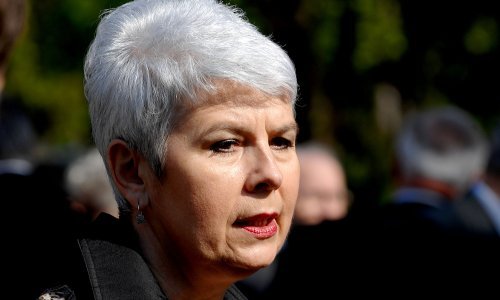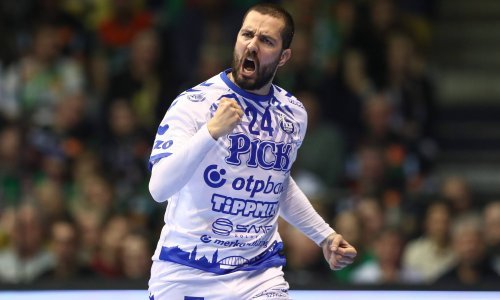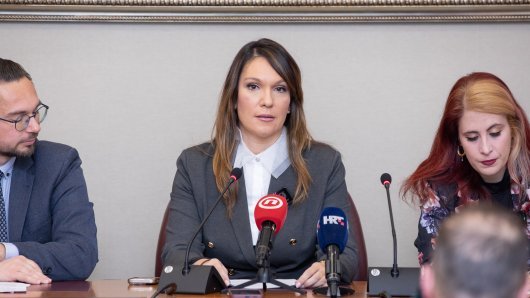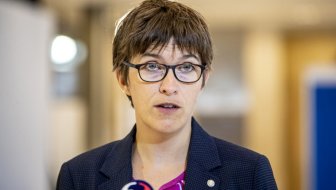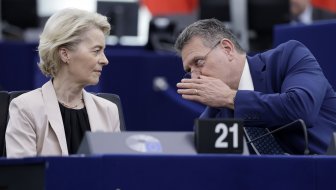Croatian Prime Minister Jadranka Kosor announced on Thursday the launching of about a dozen investment projects in the first quarter of this year, adding that the government would not tolerate the lack of financial discipline and that new measures to fight illiquidity were being prepared.
In late September 2010, the government presented 30 big investment projects worth around EUR 14 billion, and it wants to launch a large number of them this year, Kosor told a news conference.
She went on to say that a tender would be published in the first quarter for the Ombla hydroelectric power plant, outside Dubrovnik, an investment worth EUR 125 million.
A project to build a EUR 70 million transformer station in the area of Dubrovnik has been launched as well.
Speaking of investment projects in the transport industry, she mentioned the overhauling of the Krizevci-Koprivnica railway, worth more than HRK 198 million.
As for the storage of oil and oil products, Kosor mentioned a project to repair and expand the Omisalj terminal, worth about one billion kuna, and a project to build the second phase of the Sisak terminal, worth HRK 190 million.
The PM also announced legislative changes that would enable the granting of a licence for the Zagreb Airport project worth HRK 1.5 billion, and the tender is expected to be published in February.
Speaking of the northern Adriatic port of Rijeka, Kosor said that an agreement with a global terminal operator should be signed in the first quarter for a project worth one billion kuna.
A contract is also expected to be signed for the repair of the Vrulje embankment in Sibenik, an investment worth EUR 12 billion, and in February work is expected to begin on a new phase of expansion of the Gruz port in Dubrovnik, worth nine million euros.
By the end of March, tenders are expected to be prepared for contractors and financing parties in water supply and sewerage projects worth HRK 787 million, Kosor said.
She said that a new model of incentives for the sale of newly-built flats would be drawn up by the end of January, but she would not give any details.
Kosor said that the government would today adopt decisions regarding economic cooperation funds. The 2011 budget includes 100 million kuna for those funds, there is great interest in them, and we will make effort to find additional funds, she said.
The government will soon discuss changes to model A (loans granted to businesses through the Croatian Reconstruction and Development Bank for operating costs) and model B (loans intended for investments), she said.
As for the problem of illiquidity, the PM said that the government would not tolerate lack of financial discipline, that it would be strict in fighting that problem, and that the Finance Ministry was preparing new measures to deal with it.
She stressed that conditions had been created to launch fast-track bankruptcy proceedings on which talks had been completed between the finance and justice ministries.
She recalled that there were still more than 22,000 businesses without a single employee that were generating debts in the amount of several billion kuna.
"We are looking for solutions. It is impossible to entirely eradicate such businesses, but we are trying to find a solution."
She said that state-owned companies had saved an additional HRK 1.4 billion in operating costs by the end of last year, and that they had reduced outstanding liabilities by HRK 1.1 billion.
Most state-owned companies that owed money in previous years today don't have any outstanding liabilities, such as HEP and INA, she said.
Kosor added that there was a number of private investments and that Deputy PM Domagoj Ivan Milosevic, in charge of investments, and other ministers were working to help implement those investments.
It was agreed that each of the ministries involved in investments appoint a state secretary to work on those projects and cooperate with Deputy PM Milosevic, she said.
Asked about the proposal of her advisor Borislav Skegro that the budgetary deficit be reduced by selling big state-owned companies such as the HEP power company, the Hrvatske Sume forest management company, and the Hrvatske Vode water management company, Kosor said that HEP would definitely not be sold and that none of the other companies would be sold either.
The government's programme for economic recovery includes support to the capital market, Kosor said, adding that she could not say anything else about that matter today.
Such a political decision must be discussed and agreed by the entire ruling coalition, Kosor said.





